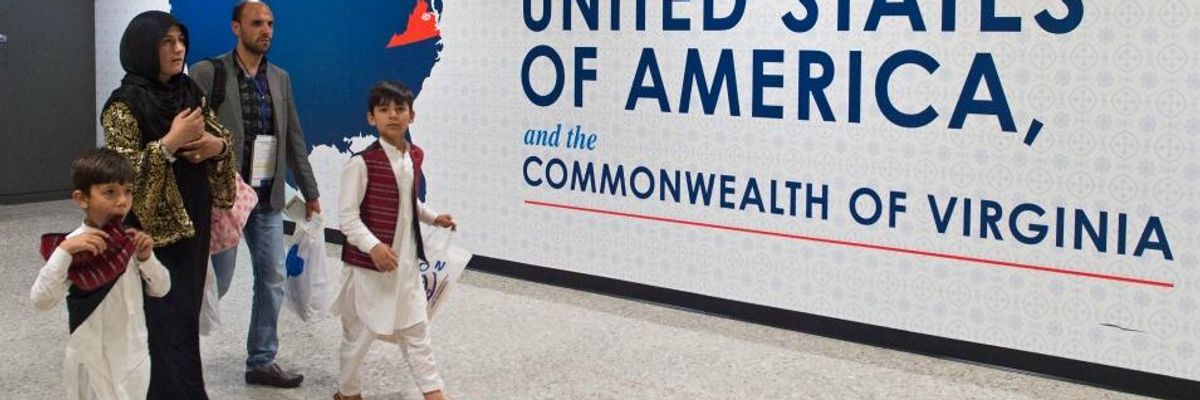Representatives for Ismail Ajjawi, a 17-year-old Palestinian student who was refused entry to the U.S. last week when he arrived in Boston to begin his freshman year at Harvard, credited the public outcry resulting from Ajjawi's treatment with forcing immigration officials to allow him into the country Monday--while rights advocates warned that his story was part of a worrying trend.
Ajjawi was allowed into the U.S. on Monday in time to start classes at Harvard and days after a border officials at Boston's Logan Airport turned him away, citing criticisms of U.S. policies some of his Facebook friends had expressed in their own social media posts.
AmidEast, a non-profit which awarded the student with a scholarship, thanked Ajjawi's fellow students and Harvard President Larry Bacow for publicly denouncing the Trump administration's decision to bar the Lebanon resident from the country.
"Many individuals and institutions played a hand in this outcome," said the group in a statement. "Our special thanks go to President Bacow and other Harvard officials for their efforts to ensure that this young man was able to enter the Class of 2023 with his peers."
After Ajjawi was sent back to Lebanon, where the U.S. Embassy reviewed his case and eventually reissued his visa, Bacow wrote to Secretary of State Mike Pompeo and acting Homeland Security Secretary Kevin McAleenan. The case attracted attention on social media and 7,000 students signed a petition in support of Ajjawai.
"We express our gratitude to the many voices in the media and the public at large, both in the United States and abroad, who recognized the injustice of what happened to Ismail and voiced their concerns in traditional media and on social media," said AmidEast.
"This reversal only happened because of the massive outcry," human rights attorney Azadeh Shahshahani tweeted Tuesday.
Ajjawi's lawyer, Albert Mokhiber, was joined by some of the student's Harvard classmates and other observers in celebrating his arrival at Harvard.
But even as Ajjawi was set to begin his freshman year, TechCrunchreported that his experience is becoming increasingly routine.
Abed Ayoub, legal and policy director at the American-Arab Anti-Discrimination Committee, told the outlet that refusing entry because of content found on a traveler's phone, computer, or social media--even if, like Ajjawi, the visa-holder or immigrant did not send or post the content--is fast becoming "new normal."
A Pakistani national identified only as Dakhil shared his story with TechCrunch, detailing how he obtained a B1/B2 visa to visit family members in the U.S. in December 2018--only to be turned away at Houston's George Bush Intercontinental Airport because of an unsolicited photo of a murdered child an acquaintance had sent him via WhatsApp.
"I was shocked. What should I say?" Dakhil told TechCrunch. "This image is disturbing, but you can't control the forwarded messages."
On social media, Ayoub called Dakhil's case an example of the Trump administration's effort to impose a "back door Muslim ban."
Faiza Patel of the Brennan Center for Justice said last week that cases like those of Dakhil and Ajjawi were "exactly the kind of thing we were concerned about" when her organization raised alarm about social media monitoring of traveling by the Trump administration in May.
"While the department's immigration vetting programs ostensibly target foreigners, they also sweep up information about American friends, family members, and business associates, either deliberately or as a consequence of their broad scope," the Brennan Center wrote at the time.
